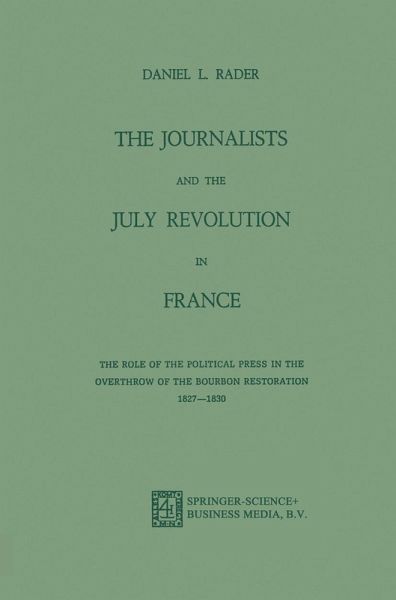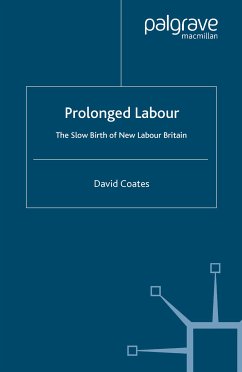
The Journalists and the July Revolution in France (eBook, PDF)
The Role of the Political Press in the Overthrow of the Bourbon Restoration 1827-1830
Versandkostenfrei!
Sofort per Download lieferbar
40,95 €
inkl. MwSt.
Weitere Ausgaben:

PAYBACK Punkte
20 °P sammeln!
The "July Revolution" of 1830 in France overthrew the King, brought down the Bourbon dynasty, and ended the fifteen-year era known as the Restoration. lt established the "July Monarchy" of Louis-Philippe, citizen King of the Hause of Orleans, a regime also destined for extinction eighteen years later. Although the 1848 revolt is of somewhat greater domestic political importance and considerably greater in its European scope and its social implications, the July Revolution of 1830 should not be relegated to the lower Ievels of historical consciousness. Yet, in modern times, even in France, rela...
The "July Revolution" of 1830 in France overthrew the King, brought down the Bourbon dynasty, and ended the fifteen-year era known as the Restoration. lt established the "July Monarchy" of Louis-Philippe, citizen King of the Hause of Orleans, a regime also destined for extinction eighteen years later. Although the 1848 revolt is of somewhat greater domestic political importance and considerably greater in its European scope and its social implications, the July Revolution of 1830 should not be relegated to the lower Ievels of historical consciousness. Yet, in modern times, even in France, relatively few works have been published concerning either the Restoration or the revolution which terminated it. New interpretations, such as the excellent works of Bertier de Sauvigny and David Pinkney have awakened the enthusiasm of scholars; but in general, the intrinsic importance of this period has been slighted for nearly a century. There are reasons for this inattention: At first glance, the era seems retrograde, born of a conservative reaction; and placid - it falls between Napoleon's giant earthquake on one side, and on the other, the dynamics of European nationalism, imperialism, and the class struggle. But the Restoration was neither archaic nor calm. lt was, for all its manifest anachronisms, an age of rapid political, cultural, and social growth. France, during these years, was maturing and ripening toward nationhood - and toward the collision of many complex forces, culminating in revolution.
Dieser Download kann aus rechtlichen Gründen nur mit Rechnungsadresse in A, B, BG, CY, CZ, D, DK, EW, E, FIN, F, GR, HR, H, IRL, I, LT, L, LR, M, NL, PL, P, R, S, SLO, SK ausgeliefert werden.












